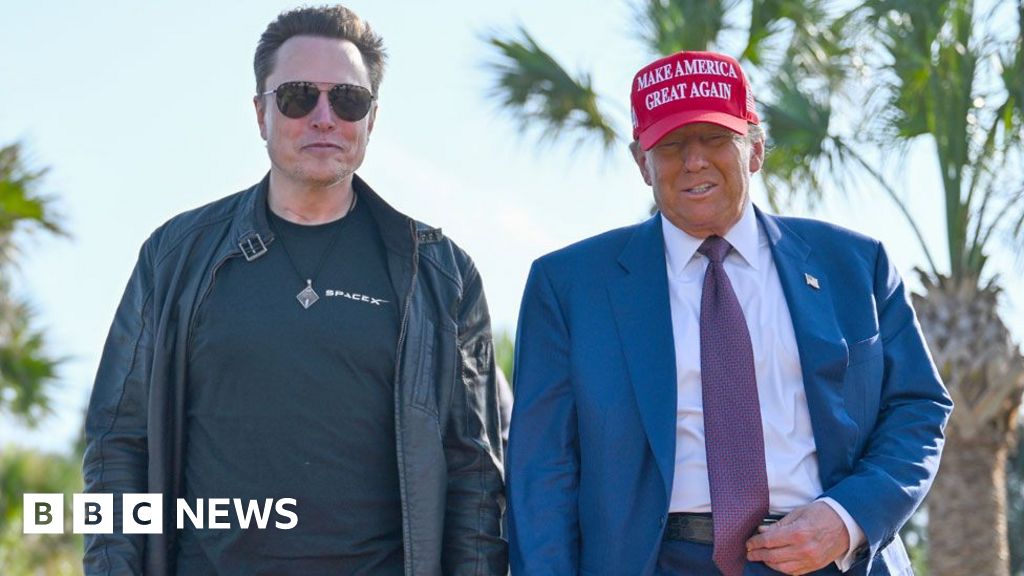Strained Ties: South Africa Faces Trump’s Threats on Aid and Trade
South Africa is currently navigating a pivotal moment in its relationship with the United States, following President Donald Trump’s recent announcement to cut financial support to the nation. This controversial decision came amid accusations from Trump that South Africa is engaging in “unjust and immoral practices” against the white Afrikaner minority, alongside the country’s legal case against Israel concerning allegations of genocide filed at the International Court of Justice (ICJ) last December.
Earlier this week, Trump’s threats sent ripples through South Africa, with analysts expressing concerns that this might lead to the removal of preferential trade access through the Africa Growth and Opportunity Act (AGOA), a special program providing trade benefits between the U.S. and African nations.
Historical Context of U.S.-South Africa Relations
Since the end of apartheid in 1994 and the election of Nelson Mandela as the first black president, South Africa and the United States have maintained a generally cooperative relationship. Despite the late removal of Mandela from the U.S. terrorist watch list in 2008, ties have experienced fluctuations.
The recent tensions were exacerbated when South African President Cyril Ramaphosa endorsed the Expropriation Bill, which allows for land confiscation without compensation under specific conditions. Trump responded with vehement criticism, describing South Africa’s leadership as engaging in “terrible and horrible things” and implying unfounded claims of land grabs.
| Aspect | Details |
|---|---|
| U.S. Aid to South Africa (2023) | $440 million |
| AgOA Benefits (2023) | $2.7 billion from exports, mainly vehicles and minerals |
| PEPFAR Contribution | 17% of South Africa’s HIV/AIDS program |
Impact of Trump’s Actions
In response to Trump’s executive order freezing aid, which may affect nearly $440 million allocated for 2023, the U.S. Embassy clarified that funding connected to the PEPFAR program would remain intact although not all initiatives may continue. This mixed message leaves South Africa in a state of uncertainty as they address these challenges.
Dr. Oscar van Heerden, a political analyst at the University of Johannesburg, highlighted that while this is not the first point of contention regarding land reform, the current situation is unprecedented, particularly because of the executive order issued by Trump.
The Global and Economic Context
According to Donald MacKay, CEO of XA Global Trade Advisors, South Africa does not rely exclusively on the U.S. as a trading partner, despite being one of its major partners. In 2023, South Africa exported significant quantities of minerals to the U.S., supported by AGOA provisions.
Expert opinion suggests that while AGOA is up for review, the consequences of its potential non-renewal may not be as drastic as feared. Many argue that South Africa has engaged in actions that have caused irritation to U.S. interests, and Trump’s administration views this moment as a chance to recalibrate that relationship.
Looking Ahead: The Path Forward
As the complexities of the relationship unfold, South Africa, under Ramaphosa’s leadership, seems committed to diplomatic engagement. However, U.S. Secretary of State Marco Rubio’s decision to skip the upcoming G20 meeting in Johannesburg signals a potential rift in cooperating with South Africa.
In light of this diplomatic landscape, the South African government may need to leverage its mineral exports strategically while exploring strengthened relations with the European Union, which has recently reinforced its commitment to South Africa amid these emerging challenges.
Ultimately, experts warn that South Africa must tread carefully, given the unpredictable political climate stemming from the Trump administration, while balancing its position on global platforms like Brics with its future ties to Western powers.


